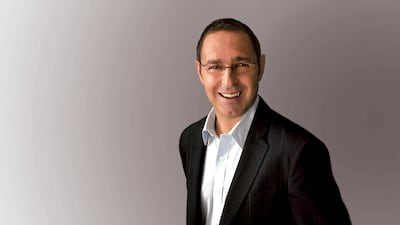The world is changing – with more people living longer and falling birth rates meaning the potential for a social care catastrophe in the decades ahead is feasible.
That trend has triggered a new dawn of longevity science, which aims to enable more of us to live healthier, for longer – easing pressures on expensive health and social care.
The Middle East is investing heavily in the science of longevity that could make reaching 90 years of age an expected part of lifespan.
If current trends continue, those aged over 50 in the GCC will comprise 18.5 per cent of the population by 2025, up from 14.2 per cent in 2020.
Limited availability of specialised treatment centres, insufficient local specialist health practitioners and over-reliance on expatriate labour could lead to a growing burden on Middle East healthcare systems.
More of us will live longer into old age, with the World Health Organisation predicting the number of people living beyond 60 will double by 2050, and triple by 2100.
While that is good news, as science continues to develop effective treatments and better early diagnostics for long-term, chronic illnesses like cancer, diabetes and heart disease – old age comes at a cost and provides unique challenges for society.
“When we say longevity, we very often don't really mean what the word implies – living longer,” said Dr Zemer Wang, medical director at DP World’s Aviv Clinics in Dubai.
“What we actually want is to live healthier, for longer.
Wellth Clinic
“Most people living to a significant age in their eighties and nineties do not enjoy a very high quality of life.
“If you would have asked them in retrospect if that was good for them, I don't think all of them would agree.”
The mere definition of longevity is an important one. It differs from lifespan – the age at which we are expected to die – as it considers how many years we live well, without the constraints of ill health.
Some may be fortunate to enjoy good health and mobility well into their 80s, but the majority will already have experienced physical and cognitive decline before then.
Lifestyle choices play a significant role, but as we understand more about our genetics and predisposition to disease, science can help head off factors preventing healthy ageing.
“Modern science has a very important part to play, but it's still not the biggest component of healthy ageing,” said Dr Wang.
“We've known how to age gracefully for many years, the problem is adopting the right lifestyle to do so.
“Hyperbaric oxygen therapy is one method to help people already compliant with a healthy lifestyle to get an edge.

“We know that with our protocol of hyperbaric medicine, we've actually shown that we reverse parts of the ageing process at a cellular level.”
Cellular damage
Researchers believe an ability to capture a cellular state known as senescence – where damaged cells resist removal causing inflammation – could provide the answer to slowing down natural ageing.
When inflammation becomes chronic, it can negatively affect the body, damaging tissue and impairing healing, while accelerating ageing and neurodegenerative disease.
Ozone therapy is another alternative medicine treatment that projects ozone gas into the body to treat various conditions and reduce inflammation.
By improving oxygenation and reducing oxidative stress, ozone therapy is believed to have potential anti-ageing effects.
“We have had patients with chronic knee issues and back pain – all cases of inflammation,” said Dr Vincenzo di Donna at the Cornerstone Clinic in Dubai Marina.
“Often, when I look after patients as a vascular surgeon, we look after the bigger veins but ozone helps my patients with the microcirculation.
“This is what heals, helps with inflammation and reduces stress in the body.
“Understanding the balance between acute and chronic inflammation is crucial for health.”
Lifestyle factors such as diet, exercise, stress management, and avoiding exposure to toxins can play significant roles in modulating inflammation.
Anti-inflammatory diets rich in fruits, vegetables, and omega-3 fatty acids, regular physical activity and adequate sleep can all cut the risk of chronic inflammation and the rate of ageing.
Anti-ageing mission
The UAE is positioning itself at the regional forefront of longevity and anti-ageing preventive care.
Alongside an anti-obesity drive to stem spiralling rates of overweight people, specialist centres are opening to focus on healthy ageing.
They include the Sharjah Research Technology and Innovation Park (SRTIP) and Deep Knowledge Analytics (DKA) joint venture in mapping the UAE’s longevity industry.

Since 2019, the Abu Dhabi Stem Cell Centre’s (ADSCC), ongoing research examined tissue regeneration and rejuvenation of ageing cells for the potential to increase longevity.
In Masdar City, a biocomputing innovation research laboratory – a partnership between Abu Dhabi’s Mohamed bin Zayed University of Artificial Intelligence and AI modellers BioMap is focusing on age-related illnesses.
According to the Office of National Statistics in Britain, a third of babies born in 2013 are predicted to reach the age of 100, while the US Census Bureau predicts the number of people aged over 85 will triple by 2060.
150-year-old human
With the advances in healthcare, living to be 120 years old has now become an imaginable prospect, according to Dr Frank Lipman, who believes ‘biohacking’ that utilises biology, genetics, neuroscience and nutrition can enhance physical and mental performance well into old age.
“This type of longevity is becoming increasingly widespread,” said Dr Lipman, a functional medicine therapist at the Wellth Clinic in Jumeirah.
“Certainly, developments in medical science and technology promise a world in which people can live longer, healthier lives.
“Sensor-based wearables or implantable technology will enable health data for real-time analysis, assisting clinicians in keeping track of their patient's medical conditions, paving the way for a world in which people can be alerted to signs of illness or disease before underlying symptoms appear.
“That is where the real challenge lies: can we create a therapy that can improve the quality of life in our old age?
“Not to make us immortal, but to ensure we live a long and healthy life.
“Rapid developments in stem cells suggest humanity is fully capable of surviving and even working well beyond present expectations, with 150 years old becoming the norm by the end of the century.”


